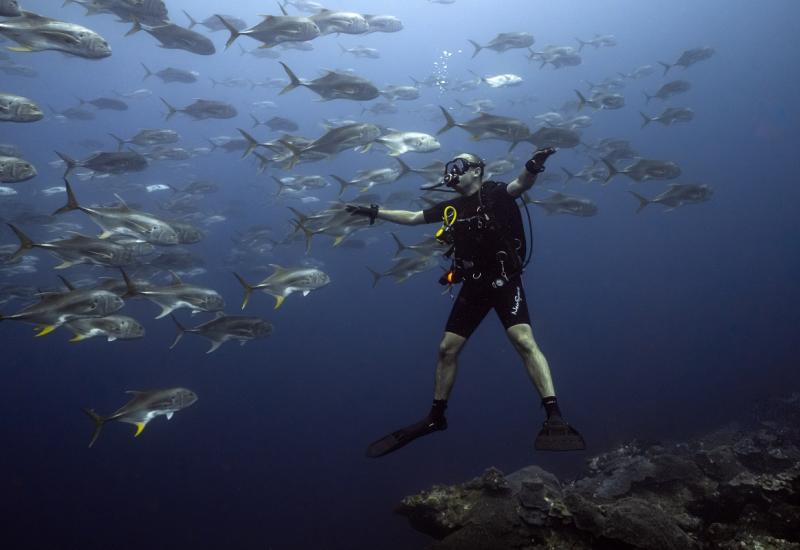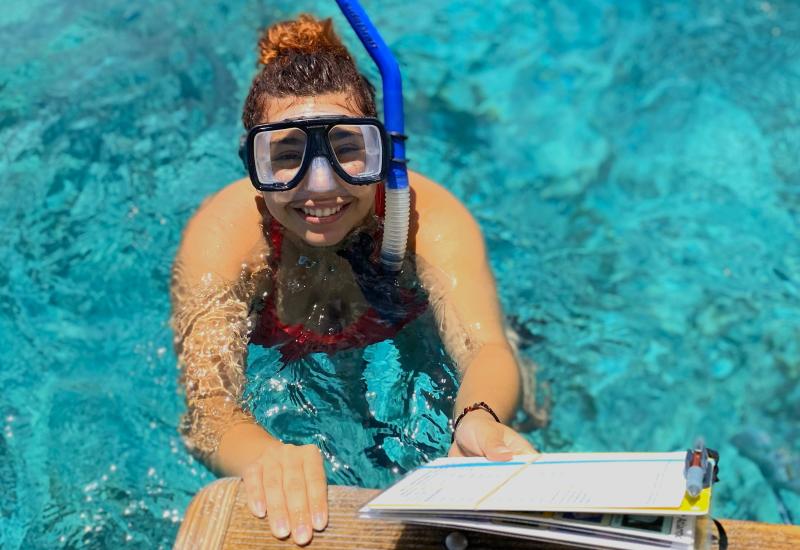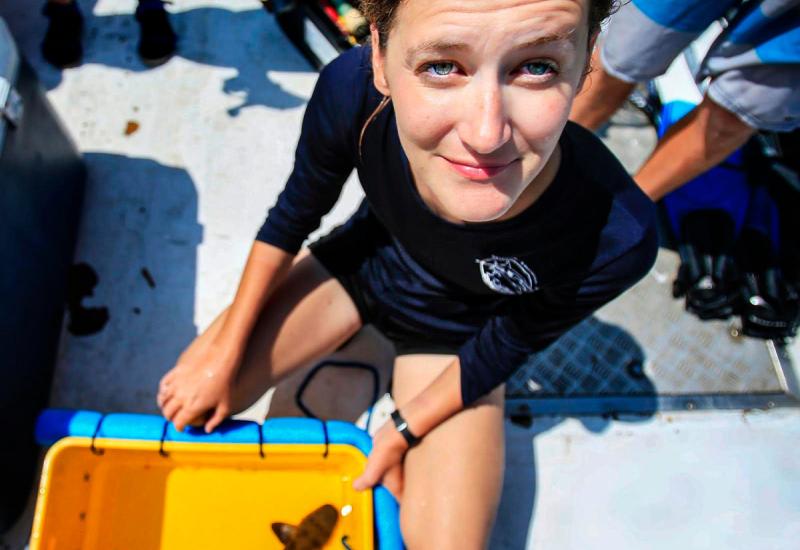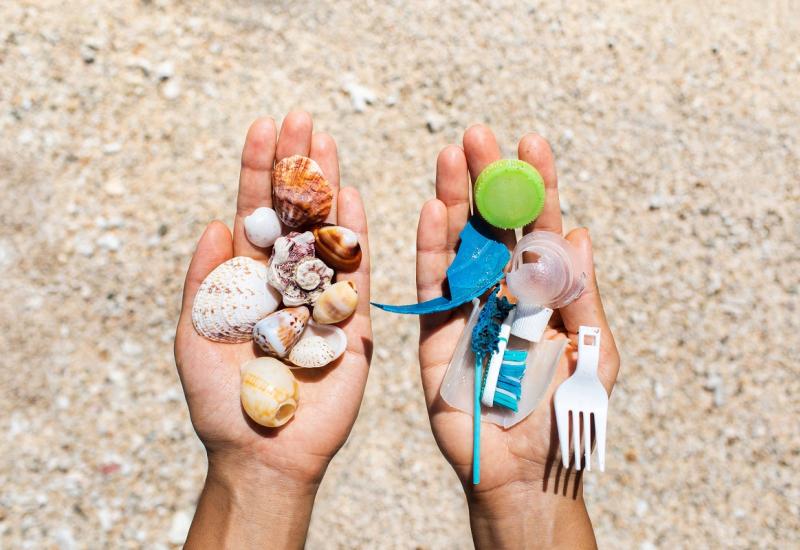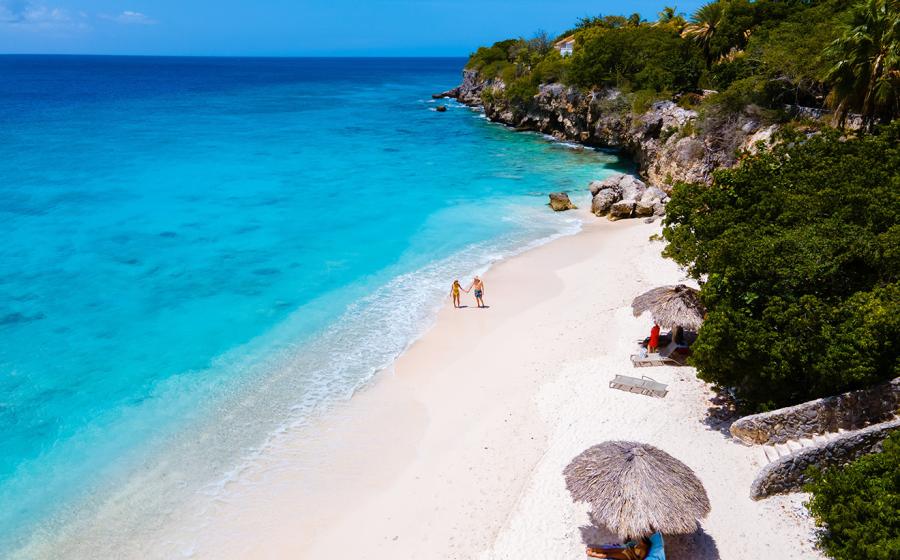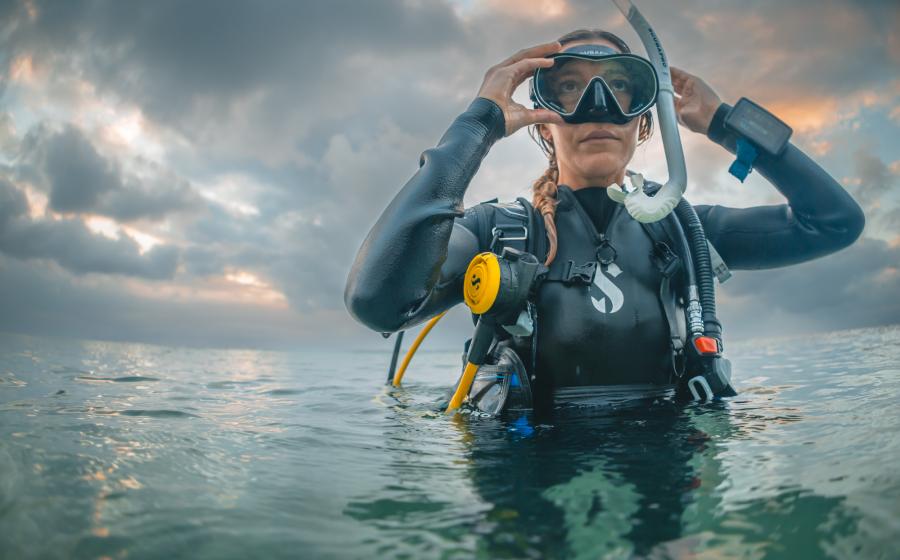"My Octopus Teacher" Director Pippa Ehrlich Earns Sea Hero Honors
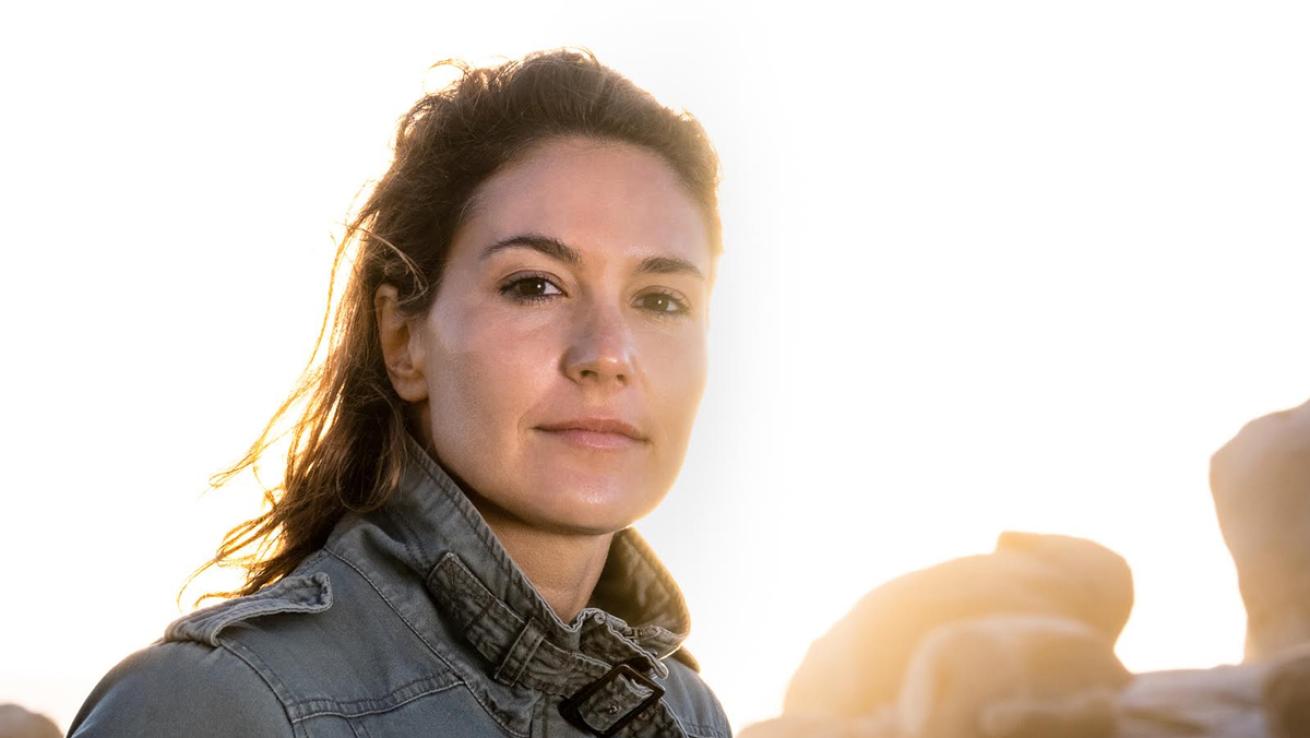
Thomas Van SchalkwykPippa Ehrlich
- Year Dive Certified: Around 2008
- Age When Certified: 19 or 20
- Dive Certification Level: Rescue
- Words To Live By: Stay calm and be kind— especially to yourself.
Pippa Ehrlich electrified the world with her Oscar-winning feature film debut, "My Octopus Teacher." The director quit her full-time job to join the project years before it was fully funded, driven by the burning desire to highlight her beloved Great African Seaforest. The uncommon love story she told between Craig Foster and a common octopus let people around the world fall equally in love with the ecosystem. Ehrlich continues her sea forest advocacy as filmmaker for the Sea Change Project, the nonprofit behind "My Octopus Teacher." For stoking passions for our oceans around the globe, Ehrlich is our November Sea Hero.
Q: What power do images have to drive conservation actions that statistics and essays lack?
A: Images can convey facts about reality, but far more powerful is the emotional response that they are able to deliver. We try to convince ourselves that we are rational beings motivated by empirical information. On one level we are, but we are also animals running on instincts tightly tied to our emotions. Scientists have shown our decision-making and behavior are influenced by subconscious instinctual programming far more than rationality. With film, you shift into a world where fact and feeling and imagery and sound and especially music can be woven together to create a highly immersive and emotional experience for your audience. I can’t say to what extent that experience is transformed into conservation action, but I hope there is a meaningful link.
Q: Before "My Octopus Teacher," you worked as a conservation journalist. What does that title mean to you, and why did you choose that path?
A: I came out of university with a degree in journalism and politics wishing I studied biology. Conservation journalism is about telling stories about the science and people who are working to protect nature, as well as the stories of those animals themselves. More recently, I started calling myself a deep nature storyteller because deep ecology views human beings as part of the web of life, an equal player in the vast network of biological connections that drive our planet. It’s this interface between humans and nature that goes beyond seeing the natural world as a resource, that views it as something critical to be a part of for the health of our minds, bodies and spirits, that really interests me.
Q: You left your full-time job to roll the dice on "My Octopus Teacher" long before the story even had a form. What about this project made you decide to take that chance?
A: Strangely enough, choosing to take the risk was the easiest decision I have ever made. I could feel it in my gut. It was exactly the story I had been waiting to tell. The whole thing resonated with me on a level I hadn’t felt before in regard to a creative project.
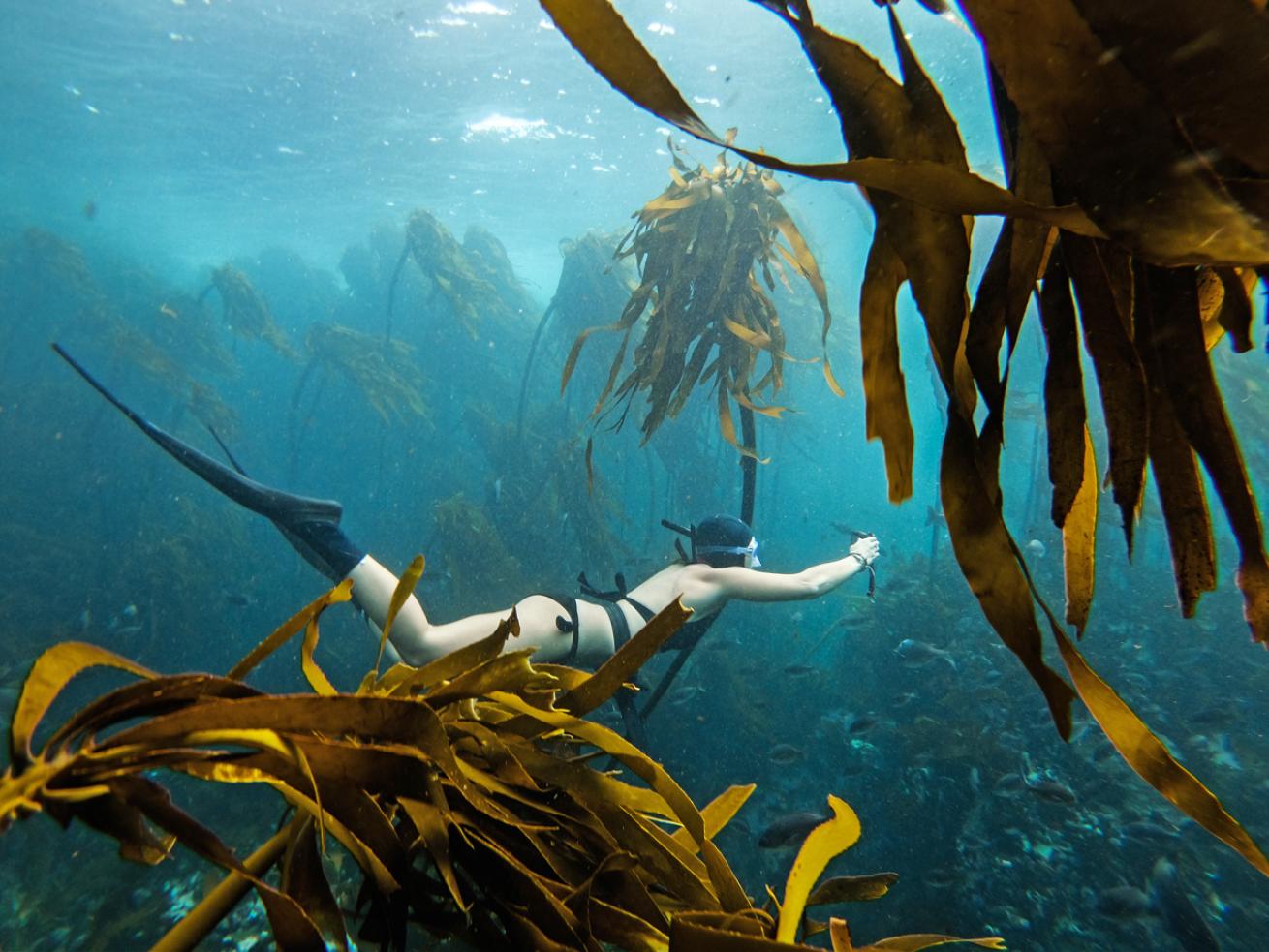
Faine LoubserEhrlich freedives through the Great African Seaforest while filming "My Octopus Teacher."
Q: You decided to let the film’s conservation message take a background role rather than stating it explicit ly. Why did you make this choice, and how do you think that impacts viewers’ relationship to the kelp forest?
A: This wasn’t an easy choice. It was something we debated constantly as a team. After many years in conservation journalism, I was fatigued by the issue-based, often punitive, finger-pointing model of conservation storytelling. I wanted to share a message of hope rather than highlighting despair, and my co-director James Reed had a very similar vision. I think the emotional narrative has a powerful impact on viewers, and I know how surprising and visually stunning the kelp forest is. For Craig and me, the approach was to be as immersive as possible in our filmmaking techniques in the hope we might be able to give our audience a sense of what it feels like to submerge in the sea-forest, perhaps falling in love with it in the same way that we have.
Q: How do you suggest individuals reconnect with nature?
A: Nature is everywhere, including in our own bodies and spirits—an hour of yoga or breathing is connecting with nature. Regarding wild nature, be aware and observe daily. You can learn from a plant or insect in your apartment, or the trees in your local park. It does help to be systematic about it. When I started in the kelp forest, I bought a guidebook and photographed everything new. Once you understand the basics, the magic becomes much easier to see.
Q: You honed your freediving skills for months to be able to dive South Africa’s cold waters. How did you train to work in those waters without any exposure suits for extended periods of time?
A: It wasn’t easy at first. For the first three months I promised myself I would go in every day for 20 minutes. I used to dread it all day, but I was committed. Then the weather got a bit warmer. One day I went in and the visibility was incredible, I was watching an octopus and somehow pushed through the cold barrier. I ended up doing a one-hour dive that day and felt like I had discovered a superpower. Every one of us has the ability to adapt to the cold, but some definitely find it easier than others (women generally seem to fare better than men). It’s important to be aware that extreme cold can be dangerous, especially for someone with a heart condition, so to be safe, I would suggest starting at about three minutes and working up incrementally from there.
Q: How can readers support conservation of the Great African Sea-forest?
A: The Great African Seaforest has moved from unknown to globally recognized from the film, but there is a huge amount of work to be done. Our organization, the Sea Change Project is working on initiatives to ensure long-term protection, and we are still diving every day to bring its stories to life. Making a donation to SCP helps protect it, as does engaging with us on social media and sharing our stories—you can’t protect something unless people know it is there.
Each Sea Hero featured in Scuba Diving receives a Seiko SRPF77 watch valued at $595. For our December issue, judges select a Sea Hero of the Year, who receives a $5,000 cash award from Seiko to further his or her work. Nominate a sea hero at /seaheroes.

